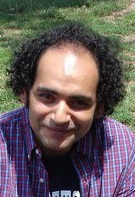 Watch western TV news features on Egypt; you will find an almost identical discourse that de-contextualises current events. It always emphasises President Morsy’s declaration that gave him unmatched powers and fomented outrage, and that’s it.
Watch western TV news features on Egypt; you will find an almost identical discourse that de-contextualises current events. It always emphasises President Morsy’s declaration that gave him unmatched powers and fomented outrage, and that’s it.
Morsy’s constitutional declaration was obviously met with some reservations from his closest people, which include his deputy, assistants, consultants and Al-Nour Party. However dominant western media discourse always fails to mention that the constitutional declaration becomes obsolete following the referendum on the constitution.
The constitutional court that dissolved the Egyptian parliament was intending to do the same with the Shura council and the Constituent Assembly, and possibly also reject Morsy’s dismissal of SCAF generals Tantawi and Annan that took Egypt out of military rule. It is worth mentioning that the constitutional court is a crony of the old regime and that 19 judges used to collectively earn EGP10 million a month. Under SCAF, their salaries were propped up reaching EGP70 million.
The constitutional court was previously threatening to abolish parliament, and prior to the constitutional declaration was going to do the same for the rest of the elected bodies in Egypt.
This would only have prolonged the transition period and prolonged pro-Mubarak influence, as well as their escape from accountability. The declaration came as a serious alarm call as it sacked the pro-Mubarak prosecutor general – who was seen as the main source of hindering justice. His dismissal was a revolutionary demand from the very beginning.
Morsy and the Muslim Brotherhood have been the scapegoats in all the current turmoil in Egypt. True, some of their past moves were not wise and at times highly provocative yet to lump all their opposition as “revolutionaries” is erroneous. First of all, mobilisation that outnumbers the anti-Morsy protests, including the late protest around Cairo University. Secondly pro-Mubarak cronies have collaborated with Morsy’s adversaries as their corruption and crimes are overlooked.
Those who were killing revolutionaries during early 2011 are today protesting with Morsy’s adversaries. Furthermore, and with irony; pro-Morsy protesters have been killed in the past few days, at least six of them, yet the media brushes this aside, failing to show their funerals or tell the stories of these men who left behind widows and orphans. Yet those who killed them are still labelled as revolutionaries and pro-democracy protestors.
Moreover the number of people injured as a result of protecting the Presidential Palace is below a thousand, of which a couple of hundred have sustained gunshot wounds. Subhi Saleh a prominent brotherhood parliamentarian was severely beaten by a mob and thrown on a railway while heading home. Locals quickly snatched Saleh before he was cut to pieces by an onrushing train. The mob followed the locals and tried to stop Saleh from getting to hospital.
These are all stories that would have made headlines in the west had the victims been anti-Morsy.
To explain the current crises exclusively as revolution versus anti revolution is flawed. It is largely a political crisis that has taken Machiavellian turns. The pro-Mubaraks and those who have an interest in keeping the old ways intact, to maintain their political and economic influence, have obviously chosen Morsy’s demise. Similarly those who know the ballot will not empower them have also chosen to prolong the transition period in hope that they will use terrorism to have a greater say in the political arena of Egypt.
Egyptians have voiced their opinions at the ballot boxes resulting in Morsy in the presidency and “Islamists” in majority, this is democratic legitimacy. Egyptians have to be respected, and going to the ballot box is the only way to ensure a peaceful transition. The current opponents of Morsy are not satisfied with the results and have provoked protests only to be met with bigger protests.
The opposition simply lacks legitimacy and is only invoking western sympathy through ideological similarities in liberalism, secularism and channels of communication that are able to articulate its interests, or common interests that kept Mubarak supported and legitimised by the US and the “international community” for decades, as Egyptians were blatantly being tortured, killed, robbed, and their elections being rigged.
Obviously Morsy does not promote secularism or an American world view of the region. Rather Morsy promotes an independent foreign policy which did not go unnoticed with recent Egyptian diplomacy dealing with Zionist aggression against the Gaza strip.
What is happening in Egypt is quite natural. As structural change occurs, resistance will be in response. Similarly those with little say in politics may justify any means for greater influence.

